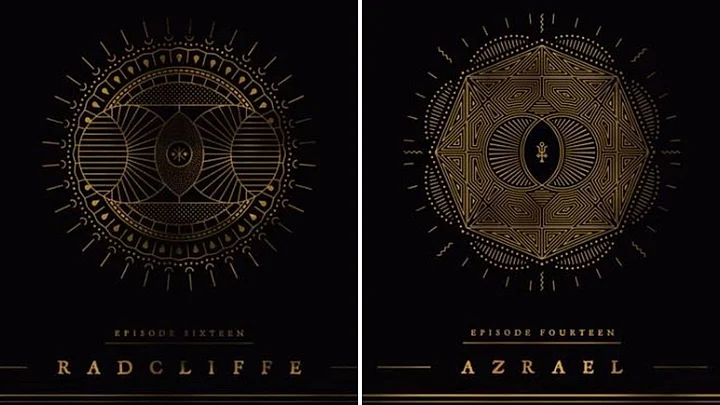Like Season 1, the second season of Sacred Games is steeped in mythological references. Just this time, it is not just Hindu mythology but epics from across the world. The game gets bigger and murkier in this season, as we see Guruji (Pankaj Tripathi) revealing his destructive plan. But we won’t delve into what is about to take place. Instead, we will explain the meaning of the title of each episode, which has a link to Mahabharata and the Epic of Gilgamesh.
The piece contains spoilers, so read no further if you haven’t watched this season:
Episode 1 - Matsya
Sacred Games season 2 begins with much anticipation - Ganesh Gaitonde (Nawazuddin Siddiqui) is being force-fed a piece of fish that is barely cooked. As he spits the food out, he says to himself – “My life has been ruined, Sartajji, and so will be yours.” Gaitonde’s days are spent in captivity, on a boat in the middle of the sea. The dreaded gangster is forgotten by Bombay (now Mumbai), and in a desperate attempt to flee from the cage, Nawaz tries to swim his way back to his homeland.
Destiny unites him with Guruji (Pankaj Tripathi). In one of his sermons Guruji says, “Vishnu’s first avatar, matsya (fish), is connected to the birth of human life. We all started out as fish. One day, the Lord’s semen dropped in the sea and it was swallowed by a fish. The fish began suffocating immediately.” Gaitonde realises that Guruji was actually telling him his own story, and he makes a plan to get out of the situation that was strangling him.
Episode 2 - Siduri
Siduri is a character from the Epic of Gilgamesh, considered as one of the earliest works of literature. She is said to represent wise female divinity and attempts to dissuade Gilgamesh in his quest for immortality.
There is a direct reference to Gilgamesh in this season. Batya Abelman (Kalki Koechlin) takes over the ashram after Guruji’s death. In one of the sequences, she is seen asking the disciples what they learnt from Gilgamesh. “That the pursuit of power and control is as futile as the pursuit for immortality. We should learn to enjoy the gift of life”, Batya says. Guruji also echoes the same thoughts and people like Batya, Gaitonde and even Sartaj’s father Dilbag Singh gravitate towards these teachings, almost as if channeling their inner Siduri.
Episode 3 - Apasmara
“As per Hindu mythology, Apasmara was a demon who had a superpower - he could control people’s minds. But he had a weakness – he was hungry for attention”, Guruji is seen narrating the story, with Gaitonde and his other followers listening intently.
He continues, “One day, Apasmara cast such a spell on Goddess Parvati that all her powers vanished. A furious Lord Shiva reached the demon’s cave and began performing tandava. The deadly noise made Apasmara’s ears burst and Shiva crushed him with his right foot.”
Gaitonde relates his story to Apasmara’s. It strikes him that he, too, is hungry for attention but is insignificant in both Mumbai and Mombasa. However, he resolves to put an end to his miseries.
Kusum Devi Yadav (Amruta Subhash) can also be viewed as Apasmara who actually clips Gaitonde’s wings till Guruji comes to his rescue.
Episode 4 - Bardo
In Tibetan Buddhism, bardo is the central theme of the Bardo Thodol, the Tibetan Book of the Dead. It represents the ‘intermediate, transitional, or liminal state between death and rebirth’, or purgatory.
Here, we see Gaitonde being torn by his violent past and the teachings of Guruji. The latter urges him to kill his former self and emerge as a more spiritual being. Gaitonde is thoroughly influenced by what the spiritual leader has to say, but little does he know that he is digging his own grave.
Episode 5 - Vikarna
Vikarna is the only Kaurava in Mahabharata who protested against Draupadi’s vastraharan.
In the episode, Dilbagh Singh tells Gaitonde the story of Vikarna and how he raised his voice when Draupadi was being publicly humiliated. Dilbagh compares Vikarna to Guruji, who is taking a stand against the atrocities that are being committed against the world. Guruji claims that the end of the world is imminent and he pledges to cleanse it of all sufferings.
Episode 6- Azrael
Jewish and Islamic texts refer to Azrael as the Angel of Death. In both, he is said to hold a scroll containing details about the fate of the mortals.
Ganesh Gaitonde is the Angel here. He sets foot in his beloved city Mumbai only to tear it apart. Brainwashed by Guruji, Gaitonde is part of the plan to launch a nuclear attack in the city. There is a “Bible” for the plan, that Guruji writes while in exile. Gaitonde retrieves this text - like the scroll of Azrael - and brings it to Mumbai.
Episode 7 - Torino
The title does not have any direct reference or even a suggestion to what is happening in the episode. Torino could be a reference to the Italian city of Turin, which is said to have magical qualities. Both Sartaj and Gaitonde have visions, sometimes of their city. The ability to foresee what’s about to happen might be hinted at.
Episode 8 - Radcliffe
The title is a direct reference to the Radcliffe Line, drawn to bifurcate India and Pakistan during the Partition. It starts with a flashback to the Partition and slowly unfolds the story of Sartaj Singh’s mother. She was separated from her sister as their family was fleeing Pakistan.
By now we also know about Guruji’s masterplan, a part of which involves pitting India and Pakistan against one another to bring about a nuclear annihilation to Mumbai. We also get a hint that Sartaj Singh might be related to Shahid Khan.
(At The Quint, we question everything. Play an active role in shaping our journalism by becoming a member today.)
